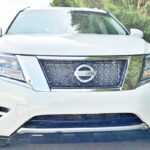
After a long absence from the market, Volkswagen’s flagship large sedan, the Phaeton, is returning as a fully electrified model. In the past, it struggled to gain recognition due to its brand image and marketability not matching its technological capabilities. However, this time, the story is different. Volkswagen is determined to reestablish itself at the center of the premium market with the new Phaeton, which embodies the true identity of a luxury electric vehicle (EV).
Volkswagen is working on the second-generation Phaeton, scheduled for an official debut in 2026. Built on a next-generation electrification platform, it will offer two powertrains: a fully electric version and a plug-in hybrid. The EV variant will feature solid-state batteries, enabling an impressive range of up to 2,000 kilometers (1,243 miles) per charge. Experts predict the Phaeton will directly compete with the Tesla Model S, Mercedes-Benz S-Class, and BMW 7 Series.


Quantum Drive: 900 Horsepower and Solid-State Efficiency
The new Phaeton will feature Volkswagen’s proprietary Quantum Drive System, engineered for high-speed, long-distance travel. With an output exceeding 900 horsepower, it delivers a quiet yet dynamic ride. The key lies in solid-state battery technology. With next-generation batteries that offer explosive energy density, Volkswagen plans to achieve a maximum driving range of 2,000 kilometers (1,243 miles).
The vehicle’s size and design are also tailored to target the premium market directly. It is 5,300 mm (208.7 inches) long, 1,950 mm (76.8 inches) wide, and 1,460 mm (57.5 inches) high. It will only be available in a long-wheelbase model. While it maintains a classic three-box sedan profile, it also integrates adaptive aerodynamic features that reduce drag at higher speeds, balancing style with function and efficiency.
The PHEV model is equally impressive. It is based on a 4.0-liter V8 engine used in Lamborghini and Porsche, combined with a high-performance hybrid system. This combination brings together the strengths of electrification and internal combustion, likely meeting the desires of high-end consumers for emotion and performance.

Next-Level Cabin: Wellness, AR, and Holographics
The interior design raises the standards of luxury sedans. Adaptive seats include biometric sensors that track body temperature, heart rate, and stress in real time. If needed, the system can automatically activate the massage function, transforming the space into a wellness area for the occupants.
The driver’s seat will include an augmented reality-based heads-up display, and the central infotainment system will integrate holographic and haptic feedback functions. This technology, which allows operation through air gestures instead of touch, enhances usability and visual immersion. The AI voice assistant function is also standard, learning the user’s driving habits and emotions to provide personalized services.
The Volkswagen Group’s board emphasized that the new Phaeton is not just a model revival; it’s a declaration of technological excellence. The company will compete alongside Mercedes and Tesla in the premium electric vehicle market. The new Phaeton could be pivotal in redefining Volkswagen’s brand status, combining technology and emotion in a flagship platform.
























